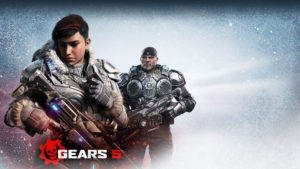 Back at the dawn of time, I played Gears of War. Later, I started to play Gears of War 2 and got maybe two chapters in, and then… never touched the series again, except in multiplayer. Even though I liked it! They were good games! But I did a thing I maybe do with frequency (in games especially), and let the perfect be the enemy of the good. Because these are two player games, and they are explicitly different in two player at times, so you feel like more is going on if you get the full experience, and since I was not at that time getting said full experience… well, here we are.
Back at the dawn of time, I played Gears of War. Later, I started to play Gears of War 2 and got maybe two chapters in, and then… never touched the series again, except in multiplayer. Even though I liked it! They were good games! But I did a thing I maybe do with frequency (in games especially), and let the perfect be the enemy of the good. Because these are two player games, and they are explicitly different in two player at times, so you feel like more is going on if you get the full experience, and since I was not at that time getting said full experience… well, here we are.
Fast forward fourteen[1] years, and I have now played Gears 5, which for one thing is no longer “of War” apparently, and for another thing is the second(!!) entry in a new trilogy, the original Gearsing having apparently been completed with volume 3 until they decided they could make more money, and for a third thing is now a three player game.
I know you’re asking. “Well how do you have three players to play a game with when you haven’t had two for over a decade?”, and that’s a fair question. But this new Game Pass dealie has drawn people out of the woodwork, is what. The important part is, I did have three players, and the game seriously uses them to good effect! Because one character is something something that’s a spoiler for this game and probably way more of a spoiler for volume 4 which I have not played, and one player is a hoverbot with a lot of cool non-gun-based powers, and one player drives sail skiffs, and together you wander around doing the kinds of things people expect out of War Gears, which is mostly fighting indigenous underground aliens. But now with occasional open world exercises instead of non-stop rails.
Long story short, it’s pretty cool still, and except for being allergic to third-person shooters or characters who have necks the size of an average American’s waist, there’s basically nothing not to like here.
[1] god help us
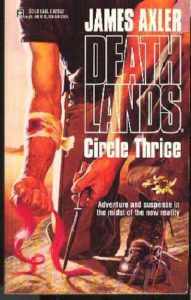 Nearly a year since the last Deathlands. Oops? But between a global pandemic and a new son, I’ve had things going on. …boy howdy. Things.
Nearly a year since the last Deathlands. Oops? But between a global pandemic and a new son, I’ve had things going on. …boy howdy. Things.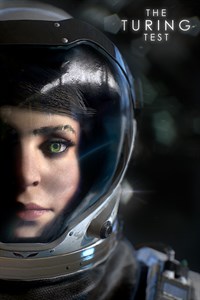 Because I am extremely timely, have another review of a game that’s leaving Game Pass today!
Because I am extremely timely, have another review of a game that’s leaving Game Pass today! 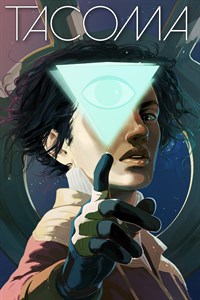 So far, my favorite thing about Xbox’s Game Pass service is that it gives me the freedom to try things out that I cannot otherwise convince myself to pay for. To wit,
So far, my favorite thing about Xbox’s Game Pass service is that it gives me the freedom to try things out that I cannot otherwise convince myself to pay for. To wit, 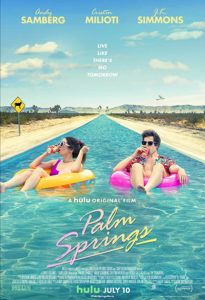 bout it the better” comedy in which Andy Samberg (one of The Lonely Island, or, if you’re not me, the lead in Brooklyn Nine-Nine) interacts with a destination wedding and the bridesmaids thereof, over the course of an interminable wedding day. (I mean, it’s only like an hour and a half or two hours, because, movie.)
bout it the better” comedy in which Andy Samberg (one of The Lonely Island, or, if you’re not me, the lead in Brooklyn Nine-Nine) interacts with a destination wedding and the bridesmaids thereof, over the course of an interminable wedding day. (I mean, it’s only like an hour and a half or two hours, because, movie.)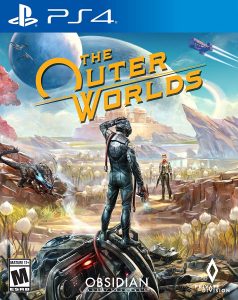 I played a game!
I played a game!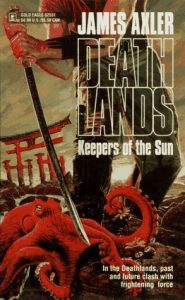 This week in the Deathlands, our heroes… are not in the Deathlands, actually. See, for the past three to five books, there have been hints of circa 17th C samurai that have been using the same teleportation gateways that our band of semi-heroes have been using to travel around the post-apocalyptic remains of what was once the United States. (So, y’know, near future sci-fi.) All of which to say, this time they come out in Japan!
This week in the Deathlands, our heroes… are not in the Deathlands, actually. See, for the past three to five books, there have been hints of circa 17th C samurai that have been using the same teleportation gateways that our band of semi-heroes have been using to travel around the post-apocalyptic remains of what was once the United States. (So, y’know, near future sci-fi.) All of which to say, this time they come out in Japan!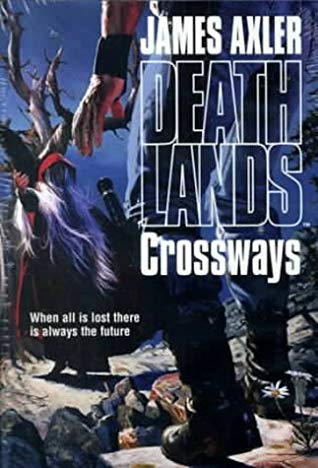 As usual, a weekend in the woods means another Deathlands book[1]. I don’t have a lot to say about it, because it was extremely transitional. Also because reviewing these is starting to feel a little like reviewing individual issues of comics? I think the latter is more true because this one was transitional. Like, when you have a really good four to six issue Spider-Man or Avengers run, and they’ve set up hints about what will happen next that’s big, but in between there are a couple of episodic villain of the week bits, with maybe two panels each dedicated to “no really, the next story is about to happen”? This is that but in book form.
As usual, a weekend in the woods means another Deathlands book[1]. I don’t have a lot to say about it, because it was extremely transitional. Also because reviewing these is starting to feel a little like reviewing individual issues of comics? I think the latter is more true because this one was transitional. Like, when you have a really good four to six issue Spider-Man or Avengers run, and they’ve set up hints about what will happen next that’s big, but in between there are a couple of episodic villain of the week bits, with maybe two panels each dedicated to “no really, the next story is about to happen”? This is that but in book form.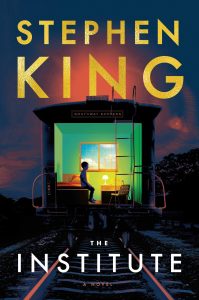 It’s nice to have read a book within a reasonable timetable for a change. I mean, sure,
It’s nice to have read a book within a reasonable timetable for a change. I mean, sure, 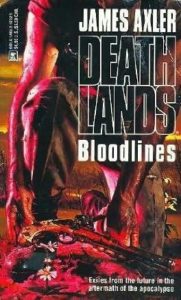 I know mostly all I do is complain about being behind and/or working constantly. But here’s my point. I read another Deathlands book, right? This is the book I take camping because I might finish one or two over a long weekend, all while helping with a giant fireworks show plus explosion, and also getting up to who knows what all manner of shenanigans. (I mean, I know, but this is a public forum, of however limited readership.)
I know mostly all I do is complain about being behind and/or working constantly. But here’s my point. I read another Deathlands book, right? This is the book I take camping because I might finish one or two over a long weekend, all while helping with a giant fireworks show plus explosion, and also getting up to who knows what all manner of shenanigans. (I mean, I know, but this is a public forum, of however limited readership.)